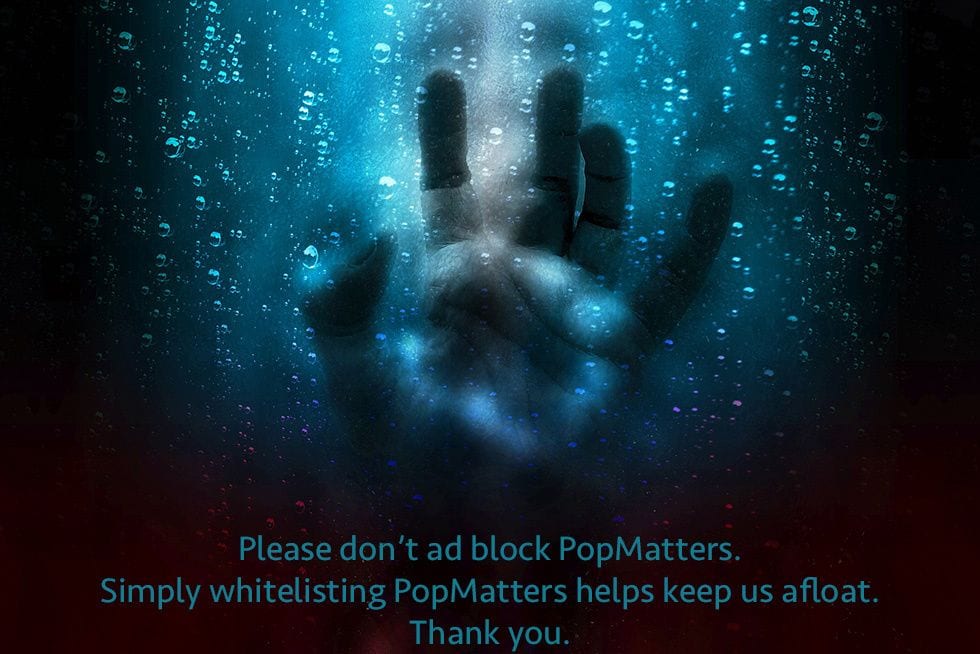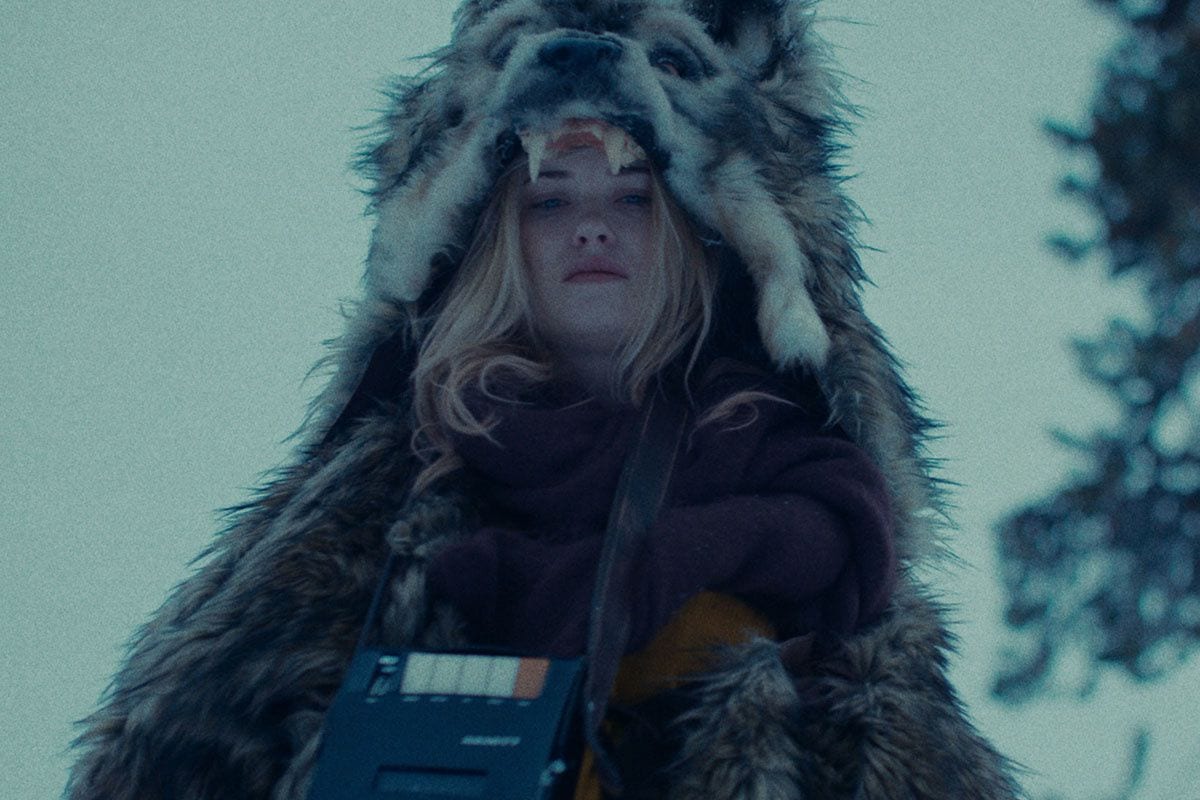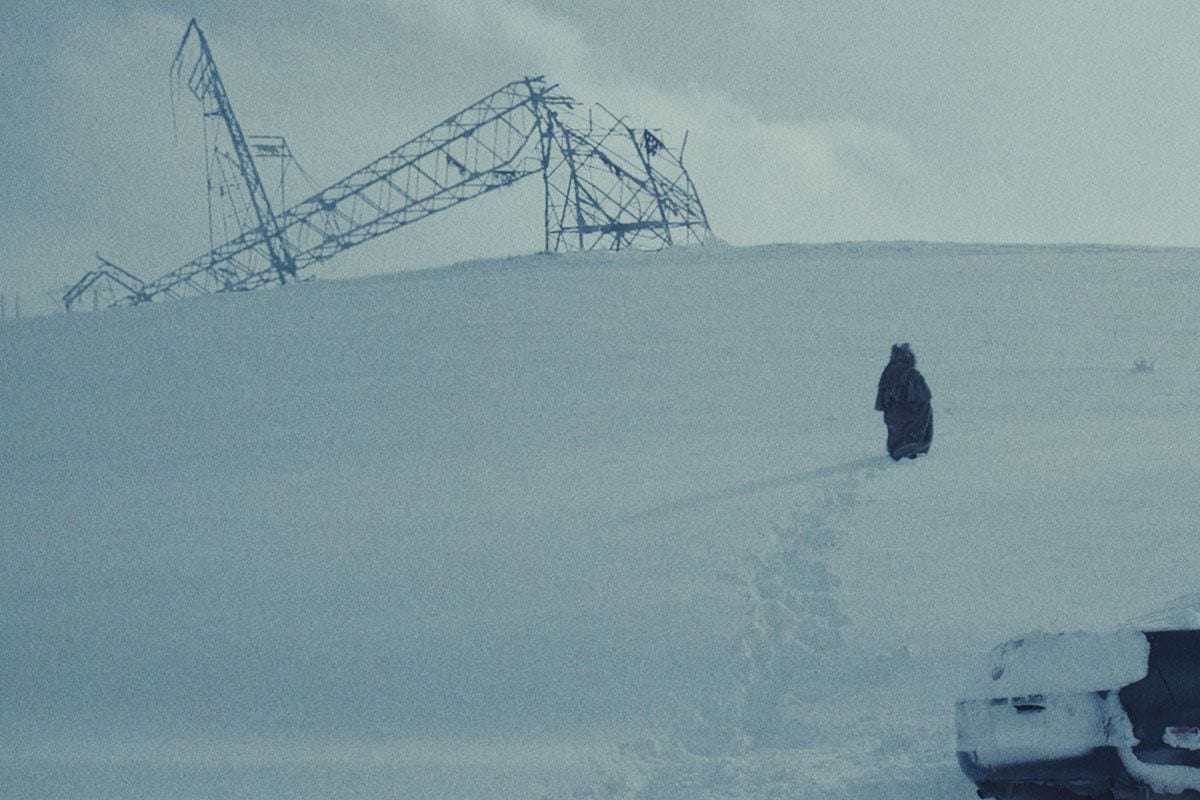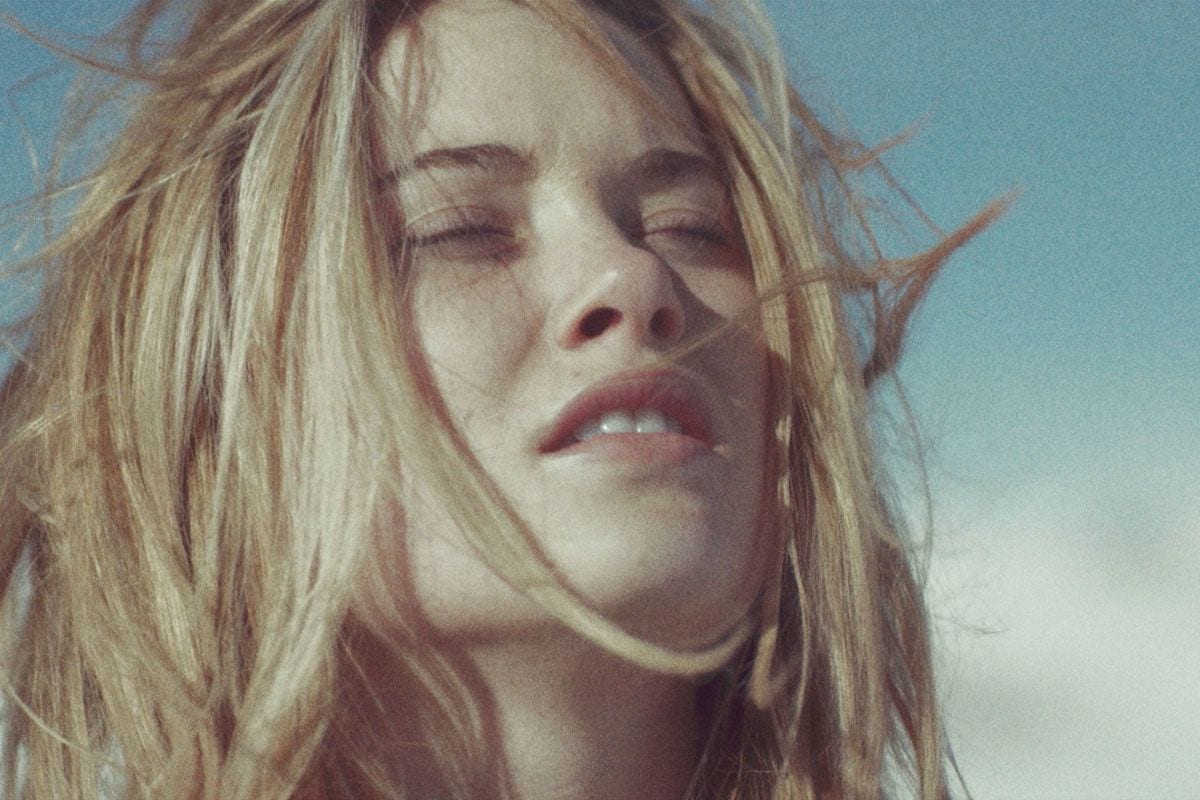
Starfish (2018) centres on Aubrey (Virginia Gardner), who finds herself thrown into a mystery when a strange signal from an unknown dimension summons the end of days. Trapped in the apartment of her recently deceased best friend, the only clue she has is found on a single cassette labeled, “This mixtape will save the world.” And so the grief stricken Aubrey, while fending off monsters that are overrunning the planet, begins to unravel the mystery orchestrated by her friend, finding individual tapes that will complete “the signal”.
The directorial feature debut of A.T. White, Starfish is thematically linked to his first short film Beneath (2011), which centred on the demise of humanity and two lone survivors in search of the answer to a mystery, with their efforts impeded by a predatory force. His other short films include: Choose (2012), Spider-Man Eclipse (2012), The Absence of Strangers (2012), Pulling Away (2013) and Another Year (2016). Outside of filmmaking, White is the lead singer/songwriter for Ghostlight, whose debut album Best Kept Secret (2019) will be followed by their new album, Dive Dark.
In conversation with PopMatters, White discusses the parallels of the musical and cinematic language, his struggles to engage with the works of Stanley Kubrick, and his unhealthy obsession with immortality. He also talks about his concerns of what he sees as limitations to challenge filmmakers, the good fortune of making mistakes on Starfish, and finding validation amidst troubled feelings of angst.
Why film as a means of creative expression? Was there an inspirational or defining moment for you personally?
To be honest, I’m one of those irritating people who says that it’s just all I ever wanted to do. I went to film school when film was the only way you could do things – there wasn’t really digital at that point, and you had to converse with too many people to make stuff happen, and I was too shy then [laughs]. I was in music anyway, so I just went further into it for quite a long period of time.
I love film because it’s a collaboration of almost every art form: photography, music, editing and acting. It’s that collusion of everything that makes it just so fascinating; what a balancing act that is. The difficult process is that I’m quite insular a lot of the time, and particularly being a musician you are obviously used to developing things a lot yourself, and with film you have to do it as a collaborative. I think as a creative person a really healthy thing to do is to learn to bring other people in, and to work with them.
When I proof a piece of writing, I’m almost listening to the rhythm of the words, so let me ask you, within the writing of the script, the performances and the cutting of the film, is there a musical dimension to the filmmaking process?
I agree with you one-hundred percent. I think it’s very complicated and fascinating, and I’m definitely not smart enough to understand completely how we got to that point. In music, depending which field you’re in, a huge percentage of it is adherent to a certain structure, in terms of verses and choruses, and middle eighths, that at some point we just established. Then, if we are having a bass line to having rhythm, it just becomes the norm, and I think film is exactly the same.
You can take the language to a very literal extreme with something like Baby Driver (Wright, 2017), obviously, and even if you are watching Masterchef (Fox, 1990-), how they like to edit with two beats of things. But even taking away that extreme, I feel that with the language of the pacing, there’s a reason why there are structures that people like to use. It’s even in the hero’s journey, which is about taking people on a journey that has the right peaks and troughs that we find satisfying. Whether that’s satisfying because that’s inherent in us, or that’s satisfying because we have been cultured to feel that way, I’m not sure. But I agree completely, and I think there is a lot of musicality in terms of the structure to film, without music even being in it.
Picking up on your point about the collaborative nature of cinema, is the auteur theory valid to the point that we can assert an individual to be the author of a film?
No, I don’t think so. Personally I feel that the level of glamour that we put into certain echelons of filmmaking actually starts from what we call “stars”. Everything I’m saying is meant with all due respect to everybody in the filmmaking process, but I think it’s a problem. On my sets I don’t like anyone to ever call an actor “talent”, and that’s something that happens quite a lot in Hollywood. If someone does that, then I feel they should call everyone else and the crew talent for the rest of the day, because everybody’s important in what’s happening.
It really frustrates me and I think “star” is another negative word, and beyond that, when you get to directors and producers, and then beyond that to writers and directors of photography, it gradually trickles down as to what people think is important.
… In the films I enjoy, a singular vision is an important thing, but then it’s all about the collaboration. The people’s job is to be a support to elevate that, and to add their own perspectives. This is what creates a truly special film.
An auteur is a very strange thing because, for instance, I love Wes Anderson, but I also recognise that what kind of makes him an auteur is that he just makes the same film again and again. He has some fantastic visionary ideas and then he does that repeatedly. It was the same with Tim Burton. When I was young I used to love Burton and then I became fed up with seeing the same film coming out of him.
I’m not the biggest Stanley Kubrick fan, but for me, he’s more of a true auteur because he changed the genre so often. It’s the same with someone like David Bowie from the music perspective — someone who can constantly challenge their own perspective on things is a lot more interesting. For film you need people around you to help you do that.
Virginia Gardner as Aubrey in Starfish (2019) (courtesy of The Orchard)
Why do you struggle with Kubrick’s work?
… This doesn’t make friends because everybody loves Kubrick, but I like to think that hopefully people can appreciate something even if it doesn’t resonate with them personally. Full Metal Jacket (1987) is the closest Kubrick came to resonating with me on a personal level, and not because I have any similarities in the life of that story, but just because he has a very cold quality that I find makes it difficult to be engaged with his characters. But I respect him immensely from a visual perspective, and then again, like I was saying from jumping into different genres all of the time.
I’m drawn to the coldness of Kubrick, and while we have a difference of opinion, it has helped me to better understand my own response to his cinema.
… I constantly think about how I’m lucky enough to share anything I have made with people. If someone says something nice to me, I’m always aware that someone in the room hated it, and both sides of that opinion I agree with. I think there’s such a large well now, with the internet and 7.5 billion people, that if you want to find a demographic of people that agree with you, you will. It’s more important than ever to be able to have conversations, where we are having the conversation because we are interested in the conversation, and not because we are trying to prove a point.
As a storyteller do you have your eye on the future, and for Starfish is there a desire for it to resonate in fifty years time, and for it to still be a part of the conversation?
I don’t know if Starfish is a good example of it because hopefully I’ll get to make some more films. We definitely started with something quite obtuse on purpose, but I would say I’m unhealthily obsessed with immortality, and I think that’s terrible. My girlfriend is a chef and I think that’s the purest form of art because it takes cultivation of food, it takes all of these collaborations with different people for many months, if not years, to bring things together to design something beautiful and to create it on a plate. The average time that food is consumed is ten minutes — then your art is destroyed.
The purest form of art is something that can be destroyed because it should be temporary, but I’m not that healthy. I’m obsessed with wanting to make things that are relevant later and that’s definitely there in Starfish.
There’s no real technology in the film, partly because I don’t find that visually interesting to look at. Obviously there are many exceptions, but I don’t like looking at a screen in a film – it’s also because it dates your film massively, and I find it so hard now at a time where we are propelling so quickly to not feel dated in a few years. I used to actually want to get into creating video games because there’s a really interesting medium there beyond entertainment, which some indie developers have started to do in the last couple of years, but it just ages too quickly, and that terrifies me.
(courtesy of The Orchard)
This question is in two parts: firstly, an individual film is intriguing because it’s in a permanent form, and yet our experience gives it an impermanence. This is a contradiction that exists at the heart of cinema, especially if we consider the way in which we view something we’re either familiar or unfamiliar with. The power of film is the way in which, on any viewing, it’s capable of triggering different thoughts as it engages with us, and also how a future audience could respond differently because of social events.
Secondly, the spectatorial experience of a film in one sense could be perceived as being located in the artist’s past, in which the spectator is always in pursuit of the artist. This strikes me as an intriguing dynamic in our relationship to you in which the past, present, and future collapse in on themselves.
… It’s like you said, there are two elements to it. One element is the language of film and how that changes with perspective over decades. I’ve been rewatching a lot of early Robert Redford films recently and I was watching Three Days of the Condor (1975), and then reading reviews of it from the time, which really look at it from the perspective that this was maybe not an action film, but an intense thriller. Now you watch it and it’s a very slow burn drama-thriller that occupies a different space, and I think it works well in both spaces.
Just from how time has changed the language of what we expect from a film constantly fascinates me. Can something outlive the time period that its genre is occupying and become something else successfully? At its heart, hopefully, and I feel like every great film is a drama, and genre is just the things that surrounds the details. So hopefully if it is a great film, then the genres can change, but the drama will always stay there.
With something like Starfish, I get to have my say, but there’s still so much I want to change and I would love to take out of it to be honest every time I catch any bits of it. But you do have to let go for emotional, as well as contractual reasons. Then I feel it’s all about everybody else getting to have their say.
I think a problem with the internet now is it continues the evolution of a film from a creator’s point of view, and I don’t really feel that’s a creator’s right. I think it’s nice to have a conversation with [the creator] if you want to get their insight on something, but I don’t feel like they have the right then to come back and offer a rebuttal to someone’s problem with their film. You had your say, you made the film, and now it’s everybody else’s, and they can interpret it and change it how they want to, and I don’t think you get to add amendments to that.
Interviewing British filmmaker Ben Parker, he spoke of how once a film has been shown to an audience, it belongs to them, and if you are to change it you need to ask their permission. What this comes down to is respecting your time as a storyteller, and the space the audience occupies in that story.
Beyond that even, there are words I think the film industry, and particularly the American film industry, is very scared of. But what I love about film is it should be about preserving or capturing a moment in a similar way to if you are a musician: you come up with a song, you then try to record it as if it’s the very first second you came up with it, and it just happens to fall out perfectly. But the reality is it’s doing lots and lots of tracking and perfecting, and I feel it’s the same with films.
… If I get to do another film, I’m desperately hoping that I’ll get to shoot it with film so we can spend less time reflecting and having options. I restrict a lot of things in post [production] on purpose because I don’t think it’s healthy to continue this discussion. I think it should all be about preserving a particular moment in time and moving forward, and it’s something that really terrifies me.
I just saw Captain Marvel (2019), and I love comic book movies and I get a lot of enjoyment out of them. The technology used in making Samuel L. Jackson young in that film is staggeringly good, but it terrifies me because then it means there’s no preservation in anything anymore. It doesn’t matter who’s dead; it doesn’t matter how old you are because we constantly have infinite options, and I think that’s something we are definitely moving further towards, and for me that’s moving away from what is the romanticism of telling stories in film.
… I find when you just restrict yourself to a few things, and you have to figure out how to you interpret what you’re trying to say — because hopefully if you’re making anything you’re trying to communicate something, whether it’s just entertainment or if there is a message or emotional feeling — you should be challenged in how you’re going to do that, and quite often that brings out the best in people.
Virginia Gardner as Aubrey in Starfish (2019) (courtesy of The Orchard)
While you speak about your preference for limitations on choice, were there times when you needed to be more open-minded to choice, especially when working with the actors? Did their performances change your approach or expectations of the story?
… I feel incredibly lucky to get to make anything, no matter something this weird and personal. We took private investment, a very small amount of money so that we could have full control, and there are positives to that, but there are also quite a lot of negatives to it as well. Art was created to rebel, and it’s necessary for the creative to argue and to have pushback. Normally it’s going to be from producers, or the production company you are working with, and you obviously want to see eye-to-eye with the core of it, otherwise I don’t think you should be working together to begin with. That’s a problem that’s recurring a lot in Hollywood: hiring directors for the wrong reasons and then firing them. But I think that’s an important dynamic in order to again bring out the best in one another, and hopefully the right decisions will then win out.
I had a lot of power on this film and the benefit we had was that in our post-production we made a lot of mistakes. It took way longer than it was meant to, and that gave me an opportunity to reflect on things a lot more objectively. If there was anything good about the film, so much of it was that final step of the editor, the producer, and my being able to come back to the film with more time to separate from it personally. But in terms of just shooting, I went in very much with single-minded ideas about things.
I find it difficult to collaborate and so it’s something that I’m definitely still trying to learn. Working with Virginia, for instance, there’s this beautiful thing that I love: you can think about a character, write the character, and this character is very much a version of myself anyway, so it was very strange to see someone else playing it, but the second that the camera rolls and Virginia does her first take, then it’s not mine anymore, it’s hers. You can’t have your preconceived notions anymore because it’s this other thing, and I really welcome that. I think it’s lovely, and that’s something that only extends further when you get to the conversation we were talking about before of the audience participating, and bringing themselves to that character as well.
How will the experience of the storytelling process, through the writing, directing and editing of Starfish impact your approach to future films?
Well for me personally, it’s a balance and a realisation, because if you have a clear vision, which as a director hopefully you do (that’s not always the case), then you want to try to utilise everyone around you to elevate the vision while retaining the core essence of it. But at the same time you can’t escape that film is a very organic thing, just because of the process. I would love to know how many films actually end up how they were originally intended, because so many of the scripts that we read, we then tailor them afterwards. Things will get cut in pre-production, altered during the shoot, and then there’s just the amount of things that will change in post-production.
From a practical point of view it’s very painful to think of the amount of scenes, the elements and time, effort and money that was spent shooting things that don’t even end up in the film. So you are always looking at how you can decrease that, so you are only utilising everyone’s time for things that are actually going to end up in the film and that are important to the story. That’s where I think the balance is, and you have to constantly be aiming at translating that singular vision as successfully as possible, and at the same time appreciate that life is going to get in the way, and that things are going to change. You have to be flexible with that, and I think that’s the joy of being a director. Yeah, you are quite pig-headed, but then when things get thrown out at you, you can adapt to them quickly, and hopefully find the way that can make the film more successful in whatever it is you’re trying to do.
For an artist to be so passionate about a work, they need to be resilient, committed and have self-belief because they are likely to encounter rejection and set backs. These character traits allow you to pick yourself up and brush yourself off and continue, but it also lends itself to the personality of the artist or storyteller being somewhat abrasive at times. In your previous answer, were you also talking about how one’s personal life gets in the way?
Oh yeah, for sure. I don’t think it’s coincidence and I really don’t say this lightly because I think it’s a painful pseudo-truth, but most of the truly great painters, musicians or filmmakers were pretty terrible in their personal lives. When you learn what it was like to work with them, or how they treated others, they were really terrible people. I think that’s a very difficult realisation, and it’s easier if you are to say they’re determined in their vision on something. You can get incredible results if you are that passionate about something that you don’t care what anyone else thinks about you.
I would like to think that there’s a balance with that, or I hope there is. It definitely affects how you feel about yourself as well, and from the beginning of Starfish, I think about the different moments of joy, and you have to learn to find joy in all of those moments — and in the defeats.
The weirdest thing is, and again this is my first film and I had no idea what to expect from a process this long, but you get to the end of it and not to use these words too lightly, but I was in quite a suicidal place. I really hated the film and thought I hadn’t done anything of worth, and I’d wasted everyone’s times and talents for three years, if not longer.
Then it becomes a very difficult thing of getting into your first film festival and people start saying nice things, and you have to allow that to obviously validate the film, but not yourself, if you know what I mean. I think it’s very difficult to then rely upon that because you only feel buoyant when people are validating you, but yeah, that’s a long and different conversation.
Filmmaker Christoph Behl remarked to me: “You are evolving, and after the film, you are not the same person as you were before.” Do you perceive there to be a transformative aspect to the filmmaking process?Personally as a filmmaker, I have one full feature at the moment and for sure I’m a very different person now, in many ways, for better or worse. To be honest this film took a lot from me, physically and emotionally. … Again, I have nothing against films that just want to entertain if that’s what your goal is — that’s changing people in ways because you just need a distraction sometimes. But for me the more important films are the ones that resonate with you and help you with your own journey.
I was just talking about this the other day with a friend. I said, “I’ve just noticed recently that all my absolute favourite films aren’t the ones I could come out of and immediately love, they are the films that I know I really appreciated them, that there was something I liked, but it takes a little while.” They have to seep in and you keep thinking about it, and then gradually you realise that you are thinking about them in the decisions in your own life. You keep calling back to that story, or that moment and then you revisit the film and realise, ‘It’s is a very important film to me, so it’s definitely one of my favourites.’
* * *
Starfish is available on iTunes (NA, UK, AU, NZ), Amazon (US, UK), Google Play (NA, UK, AU, NZ), Vudu, XBox, Playstation, FandangoNow, and Redbox, as well as on select cable and satellite platforms.





